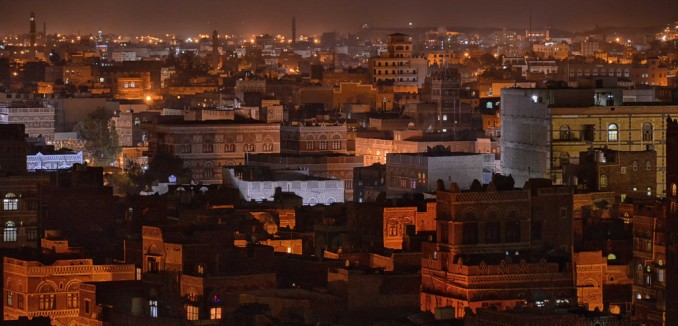Yemen’s Iran-backed Houthi rebel movement and its political allies have announced the creation of a governing council, threatening United Nations-sponsored peace talks to end the country’s devastating civil war, Reuters reported on Thursday.
The Houthis, a longtime Zaydi Shiite insurgency in the country’s north, took advantage of political paralysis in Yemen after protests forced the country’s strongman president, Ali Abdullah Saleh, to step down in 2012. By early 2015, the Houthis, buoyed with support from the ousted Saleh and from Iran, seized control of the nation’s capital and overthrew the internationally recognised government of Abed Rabbo Mansour Hadi, a U.S. counter-terrorism partner. Saudi Arabia and its Gulf allies then launched an airstrike campaign to back the government’s remnants in Yemen’s south.
Peace talks between the country’s factions are underway in Kuwait, but Ismail Ould Cheikh Ahmed, the United Nations’ special envoy for Yemen, said the Houthi’s latest move put the diplomatic efforts in jeopardy. “The announcement of unilateral governing arrangements is not in line with the peace process and endangers the substantial progress made during the Kuwait talks,” Ould Cheikh Ahmed told Reuters in a statement. He added that the creation of the council breached U.N. Security Council Resolution 2216, which called on the Houthis “to refrain from further unilateral actions that could undermine the political transition in Yemen.”
Iranian shipments of weapons to the Houthis have been repeatedly intercepted by U.S. naval forces. The shipments included thousands of rifles, RPGs, anti-tank missiles, and other light and medium arms. Iran has openly acknowledged its support for the Houthis, and in early March 2015, Lebanon’s NOW Media reported that Houthi fighters were receiving training in Syria on behalf of Iran. European sources cited by the outlet said that “Thanks to Iran, Syria has become a field training camp for the Houthis, a center for them to gain weapon skills through real field experiences that are difficult for them to gain anywhere else.”
If the Houthis successfully shore up their power over Yemen, Iran-backed groups will effectively control four Arab capitals: Beirut, Damascus, Baghdad, and Sana’a.
Iran’s role in Yemen highlights concerns over Iran’s expanding regional influence. Frederick Kagan of the American Enterprise Institute wrote in February 2015 that “Iran has deployed conventional and irregular forces to numerous conflicts throughout the Middle East…Tehran also appears to be undertaking an expansion of its conventional military capabilities. The global Iranian threat—independent of the status of its nuclear program—is greater today than it has ever been.”
[Photo: Rod Waddington / Flickr]




